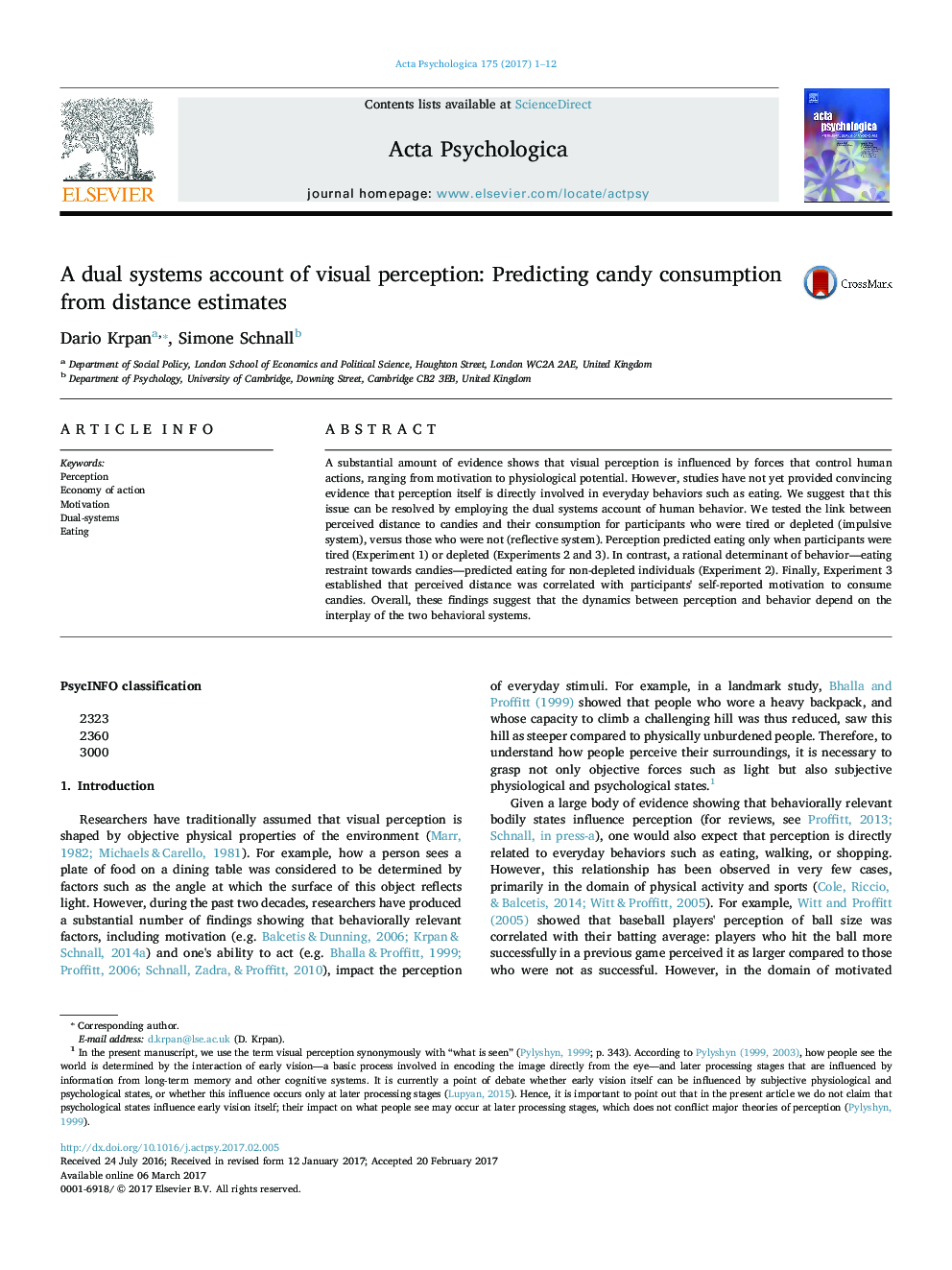| Article ID | Journal | Published Year | Pages | File Type |
|---|---|---|---|---|
| 5040305 | Acta Psychologica | 2017 | 12 Pages |
â¢We applied the dual systems account of human action to investigate the link between visual perception and candy consumption.â¢Perceived distance predicted eating only when the impulsive system was enhanced.â¢Perceived distance was correlated with motivation as an impulsive determinant of behavior.â¢Eating restraint regarding candies predicted their consumption only when the reflective system was enhanced.
A substantial amount of evidence shows that visual perception is influenced by forces that control human actions, ranging from motivation to physiological potential. However, studies have not yet provided convincing evidence that perception itself is directly involved in everyday behaviors such as eating. We suggest that this issue can be resolved by employing the dual systems account of human behavior. We tested the link between perceived distance to candies and their consumption for participants who were tired or depleted (impulsive system), versus those who were not (reflective system). Perception predicted eating only when participants were tired (Experiment 1) or depleted (Experiments 2 and 3). In contrast, a rational determinant of behavior-eating restraint towards candies-predicted eating for non-depleted individuals (Experiment 2). Finally, Experiment 3 established that perceived distance was correlated with participants' self-reported motivation to consume candies. Overall, these findings suggest that the dynamics between perception and behavior depend on the interplay of the two behavioral systems.
